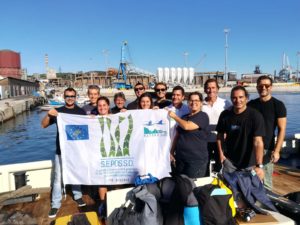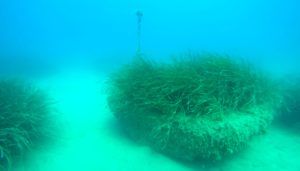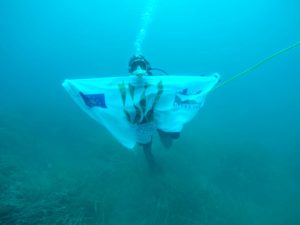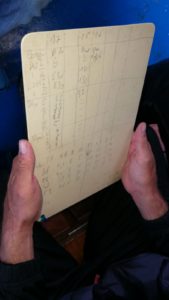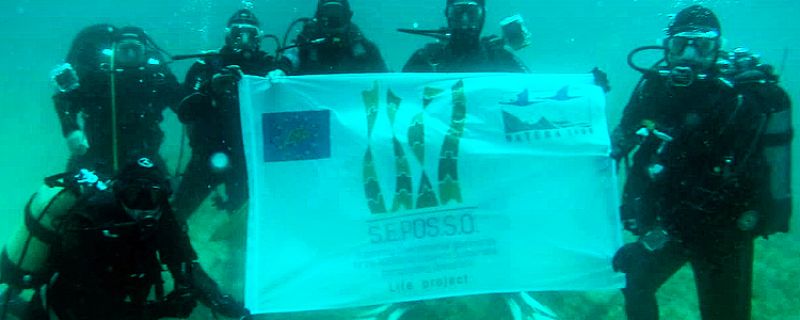
- ACTION B.2,NEWS,SEPOSSO
- No comments
As part of the events scheduled in Piombino between 9 and 12 October, a series of technical-scientific dives on the study site in the Gulf of Follonica (Action B.2) have been carried out. The surveys have been performed by involving simultaneously the divers of ISPRA, ARPA Toscana (ARPAT), University of Rome Tor Vergata (UNIBio2), University of Palermo (DISTeM), and of the Port System Authority of the Northern Tyrrhenian Sea (AdSPMTS). Overall, 50 hours of monitoring involving 11 active operators allowed the sharing of methodological techniques. During the dives the operators verified the conditions of Posidonia oceanica transplantation, which was carried out in the Gulf of Follonica in 2014. The transplant, prescribed in the frame of the Environmental Impact Assessment decree, was developed as a compensation measure for the impact caused by the dredging of the exit channel in the port of Piombino. The transplant was performed by explanting 340 prairie clods from the dredged area, each about 4 square meters in size, and transferring them to areas identified as suitable. In addition to the existing video-photographic surveys, a new monitoring protocol allowed the acquisition of data from the entire transplant area. The survey was performed on more than 60 clods, equal to about 20% of all the transplanted ones. Preliminary observations show a high variability in the conservation status of clods, some of which are in good condition, some others totally eroded by hydrodynamic action, while others in an intermediate state, still difficult to classify. The most evident criticalities in determining the failure cases in this transplant were the bad techniques for transferring clods, storm surges, and water turbidity generally present on the area. The detailed results of these activities will be fundamental to increase the knowledge base that will lead to implementation of good practices to be used in the transplant management platform (PTWP), whose implementation is one of the central objectives of the Life SEPOSSO project.

